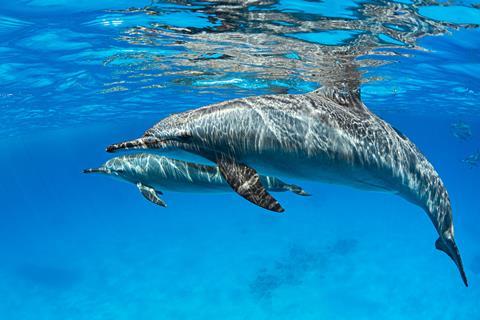In the fifth and final article in our series on parenting styles Robin Barfield looks at the dolphin as a great example for Christian parents

There have been several animal parenting styles that I’ve talked about in the last few articles. Drawing on Solomon’s wisdom and the common grace that comes from the world, these styles can give us clues to self-reflecting on our own parenting styles.
One of the most popular from about a decade ago was Shimi Kang’s Dolphin Parenting approach. In it she contrasted competitive and authoritarian tiger parenting, which I mentioned before, with jellyfish parenting which is permissive and floats along on the currents. The first is led by parental desires, the second by the child’s demands. Her criticism of the first is striking: ‘The activities of tiger parenting…do not represent “overparenting”, as tiger parenting has been called. They represent serious underparenting. If parenting means preparing your children for a rich, rewarding life, then tiger parents are doing far too little rather than too much.’
the dolphin – a collaborative parenting position where the parent has desires and goals which are worked out with the child
But she is similarly critical of jellyfish – they lack purpose and give over too much agency to the child too early. They ‘fail to define expectations around matters such as respecting authority, social etiquette, or personal values.’
As a mediating position Kang suggests the dolphin – a collaborative parenting position where the parent has desires and goals which are worked out with the child. The strengths of this are that she is keen to stress that the model will vary with each child, its not a ‘4 rules for life’ based approach, but relies on the wisdom and knowledge of the parents. This ‘flexible’ approach to parenting gives a freedom and confidence to parents.
She bases her approach around three key elements: play time, social time and down time, emphasising a balance of the three. Continually contrasting to tigers and jellyfish, the dolphin parent values all three. It is important to allow time for our children to explore, for our children to spend time with others and time resting, exercising or sleeping.
If the tiger is competitive and the jellyfish is contemplative, the dolphin sees the value of our children just being children
There is some considerable over-promising in Kang’s approach – I’m not convinced that this will inevitably lead to ‘health, balance, meaning and purpose’ as she claims. The book of Job tells us that sometimes worldly wisdom is upended by life events. But there are some real strengths here. Without giving up parental authority, Kang encourages parents to notice the individuality of their children. These are biblical ideas but wisely holding them together is not always easy.
I wonder how you solve issues of misbehaviour or disobedience. Do you let it go and allow your child to have their way? Or do you clamp down on your rules saying, ‘because I said so.’ The dolphin parent calmly explains and listens to their child’s objections. Doesn’t that sound idyllic? Perhaps it is an aim and an aspiration more than it is a reality. It can be hard to maintain that balance as a meltdown occurs or you just need to get to school and you’re already 15 minutes late.
But the wider goals are good: seeking creativity, collaboration, critical thinking and communication through those play, social and down times - in this approach there is a beautiful sense of holding onto what is important about childhood. There is something wonderful about the playful imagination of a child and the danger of adult involvement is that we want their time to be more purposeful. Often this means encouraging them to do an activity that has some measurable beneficial effect and advantage over their peers. If the tiger is competitive and the jellyfish is contemplative, the dolphin sees the value of our children just being children. Do you value time for your child to play, to rest and to chat?
Read more:
What’s your parenting style? Are you a lawnmower?
What’s your parenting style? Are you a dry-clean parent?
What’s your parenting style? Are you a helicopter or a satellite parent?
What’s your parenting style? Are you an elephant or a tiger parent?
Of course, as far as I’m aware, Kang does not have a love for Jesus as her goal, and there’s a huge difference between a happy, balanced life and a faithful life. As Christian parents our sense of purpose in life will be different and we will want to refine her model. But it is an interesting starting point for reflecting on ourselves and how perhaps we may have got into unhealthy stuck patterns in our family life. Its certainly helped me to reflect on my own approach and how it has changed through the years as my children have grown. It made me reflect on what dolphin parenting might have looked like for me through all the stages and how it might have changed with them. I think this is a good thing.
What about you? As we have thought about elephants, lawnmowers, satellites, dry cleaners and now dolphins over the last few articles, which have struck you as most useful? It may be that the negative examples have hit home most closely; that’s quite common. The negative metaphors can show us our errors in mirror-like precision, like a boil on our face that we hadn’t spotted before. That can be hard and dispiriting. But take heart from the positive pictures; we are all working it out, and as we faithfully follow Jesus trying to parent as he would want us to, then we can hold firm to a better Father who walks with us through it all.


































